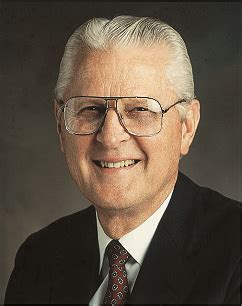A Quote by Richard G. Scott
Feelings of bitterness and dissatisfaction feed upon themselves and give place to thoughts and acts of unkindness, criticism, and eventually even hatred. Criticism is often motivated by a desire to rationalize one's own shortcomings and to justify termination of sacred marriage covenants.
Related Quotes
Though Israel may often be deserving of criticism, what is missing is the comparable criticism of equal or greater violations by other countries and other groups. This constant, often legitimate criticism of Israel for every one of its deviations, when coupled with the absence of legitimate criticism of others, creates the impression currently prevalent on university campuses and in the press that Israel is among the worst human rights violators in the world....it is not true, but if it is repeated often enough, it takes on a reality of its own.
That was one of the big problems in the [Black Panther] Party. Criticism and self-criticism were not encouraged, and the little that was given often wasn’t taken seriously. Constructive criticism and self-criticism are extremely important for any revolutionary organization. Without them, people tend to drown in their mistakes, not learn from them.
I don't have a very high opinion, actually, of the world of criticism - or the practice of criticism. I think I admire art criticism, criticism of painting and sculpture, far more than I do that of say films and books, literary or film criticism. But I don't much like the practice. I think there are an awful lot of bad people in it.
One of the great blessings of the restored gospel is the privilege of entering into sacred covenants with our Father in Heaven-covenants made binding by virtue of the holy priesthood. When we are baptized and confirmed, when brethren are ordained to the priesthood, when we go to the temple and receive our endowment, when we enter into the new and everlasting covenant of eternal marriage-in all these sacred ordinances, we make solemn commitments to keep God's commandments.
I take criticism so seriously as to believe that, even in the midst of a battle in which one is unmistakably on one side against another, there should be criticism, because there must be critical consciousness if there are to be issues, problems, values, even lives to be fought for... Criticism must think of itself as life-enhancing and constitutively opposed to every form of tyranny, domination, and abuse; its social goals are noncoercive knowledge produced in the interests of human freedom.
Self-criticism is not "love," and it is certainly not indifferent. It's a form of hatred. And when I name that, when I see it for what it is (raw and uncomfortable and saddening), when I refuse to sugar-coat self criticism, judgment, agitation, and constantly trying to improve myself, then I'm one quantum leap closer to freedom.






































